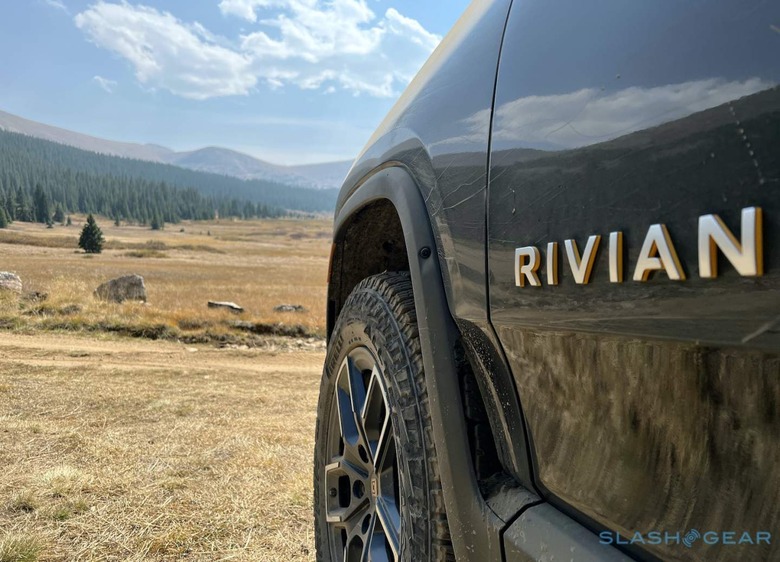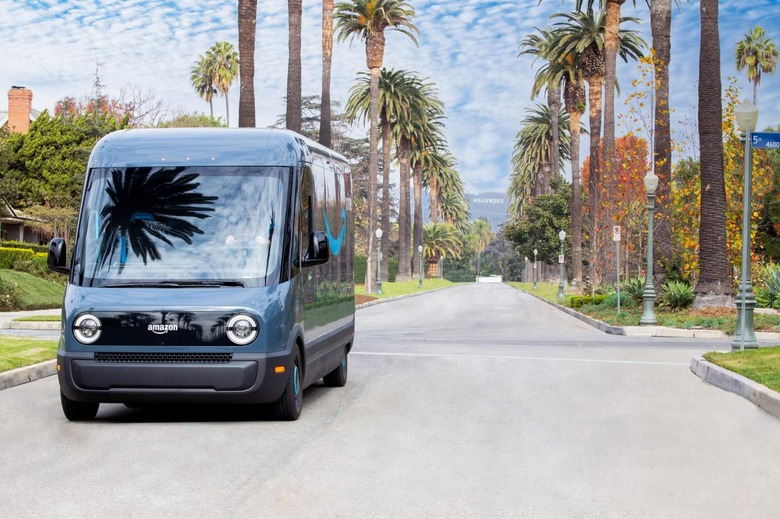Rivian Stock Surges On Day One Amid EV Maker's Simmering Controversies
Rivian shares hit the market today, and it's already proving to be a hefty success for the Tesla-rivaling EV-maker despite ongoing questions about production and more. The company – which began shipping relatively small numbers of its R1T all-electric pickup truck recently, and plans to do the same with its R1S SUV in 2022 – had priced its RIVN shares at $78 ahead of their Nasdaq debut, but they opened at almost $107 each.
As of publication, the price had increased and then dipped, reaching a high at one point of almost $120 each. In the process, it pushed Rivian's valuation beyond that of auto-industry mainstays like Ford and General Motors.
Ford, though, is unlikely to be entirely upset about that. The automaker has a 12-percent stake in Rivian, after all, alongside Amazon with a 20-percent stake. The startup's backers had helped propel its pre-IPO raise to more than $10 billion in total since 2019.
According to Rivian's pre-IPO disclosures, it has almost 50,000 preorders for consumer vehicles so far. The R1T – which we drove in September – and the upcoming R1S are only part of its story, however. Arguably more significant is Rivian's huge contract with Amazon, with the retail behemoth ordering 100,000 custom electric delivery vehicles for delivery between now and 2030.
Recently, Rivian confirmed that it would also be opening the order books for other companies looking for business EVs.
While exceptions for Rivian's stock were high, the automaker hasn't had an entirely easy run. Multiple controversies have landed in recent years, including several delays to the R1T and R1S launch. Initially, the plan had been to have EVs on sale by late 2020, but various constraints – not least the global semiconductor crisis – contributed to pushing that back by around 12 months.
More disturbing were recent allegations of discrimination within the company. Whistleblower Laura Schwab accused Rivian of "toxic bro culture" and claimed – in a blog post along with a lawsuit against the automaker – that she'd been fired from her position as vice president for sales and marketing for voicing those complaints. Rivian, though tight-lipped in the pre-IPO period about the accusations, has long pitched itself as a more thoughtful, modern automaker than some of the more traditional brands, focused on a broader vision of sustainability.

The allegations don't seem to have dampened the market's appetite for Rivian stock, though even with a hefty valuation the buoyed startup faces some challenging years. To begin with, it need to ramp up production of the R1T and R1S so as to begin adding some meaningful profit to its balance sheet. So far, that's seen a whole lot of spending and very little income from actual EVs.
Set to make that process harder are some familiar names weighing into the electric truck category. Ironically, Rivian-backer Ford looks set to make arguably the biggest splash there: the 2022 F-150 Lightning, the first all-electric model in the legendary F-Series, will begin deliveries in spring 2022. Ford already has in excess of 160,000 reservations for the truck, which begins at around $40,000 in commercial trim.

Even with Ford ramping up its production goals, its target of 80,000 F-150 Lightning being built each year would still fall behind initial demand – despite dwarfing Rivian's R1T and R1S production capabilities for the time being. While Rivian has said it expects to be able to eventually build as many as 150,000 EVs each year at its Illinois plant, only 65,000 of those would be consumer vehicles like its pickup and SUV. The remainder would be delivery vehicles such as those it is building for Amazon.
Waiting in the wings, meanwhile, are several other big-name competitors. Chevrolet has confirmed it'll have all-electric Silverado trucks on GM's Ultium platform, and Ram is preparing an all-electric version of the Ram 1500. Tesla's Cybertruck is sitting pretty on hundreds of thousands of reservations, though it remains to be seen when, exactly, production EVs will actually arrive with would-be owners.
Still, with Rivian's roadmap pegging the reservation backlog as taking until the end of 2023 to satisfy, there's plenty of time for its rivals to make their own splash.
